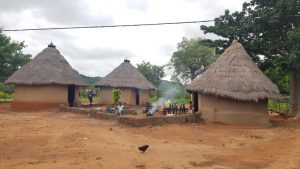Abstract: The community-based natural resources management (CBNRM) pro- gramme in Botswana was developed to facilitate a partnership between local communities and government for the conservation of natural resources whilst giving local communities usufruct rights to natural resources. This study sought to establish the impact of the wildlife hunting prohibition on the livelihoods of rural communities. Data for this study was obtained through a cross-sectional survey. The findings of the study suggest that the wildlife hunting prohibition which was introduced in 2014 impacted on the livelihoods of rural communities in areas such as employment and income from community-based organisations (CBOs). Prior to 2014, CBOs had found themselves in a rentier-ship status without any direct parti- cipation in the operation and management of hunting safaris. The wildlife hunting prohibition, however, did not void existing leases such as leases for hotels and lodges or other natural resource uses such as gathering veldt products. Since its inception, the implementation of the CBNRM programme had been largely focused on the utilisation of wildlife resources with the result that wildlife hunting had generated revenues quickly and easily for local communities. This paper argues that the removal of the wildlife hunting prohibition should be considered for wildlife species noted for causing damage and/or whose population has shown an increase such as elephant and buffalo. The loss incurred by rural communities from the damage caused to property and crops by wildlife militates against the perceived earlier successes of the CBNRM programme in wildlife conservation and poverty reduction.

Contextualising the Glasgow Leaders’ Declaration on Forests and Land Use
IWMC is pleased to have permission to publish Dr. Nikolas Sellheim‘s overview and comment on the Declaration on Forests and Land Use issued on 2



